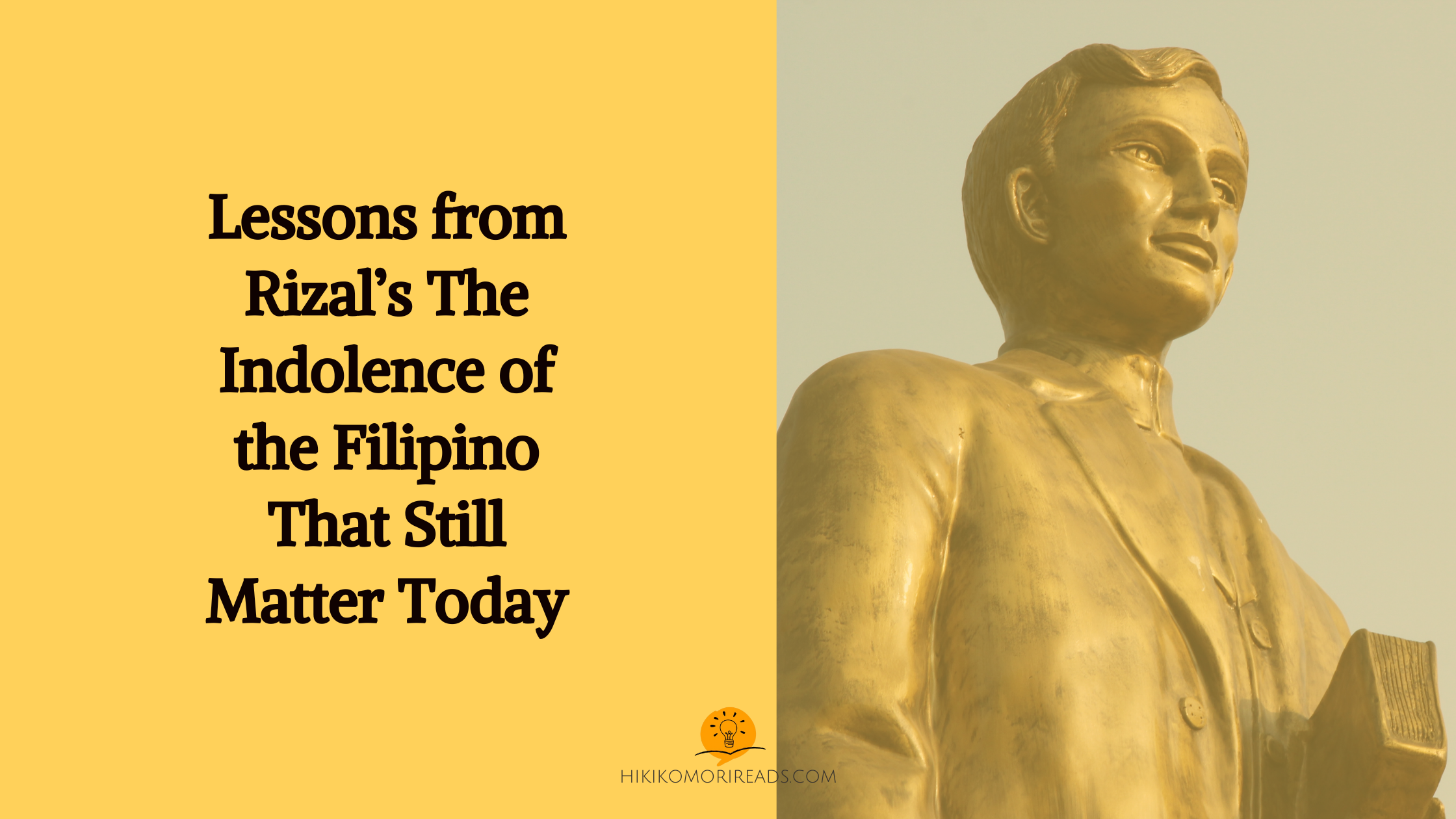Had social media existed when Jose Rizal published “The Indolence of the Filipino,” the essay’s title would have been clickbait — triggering hurt Pinoys and validating the Westerners who really believed Filipinos are idle.
However, both parties would have also learned that their reactions were far from Rizal’s point. The national hero’s essay, while sounding like a glorified rant against the colonizers, was ultimately a love letter to his kababayan. It was a love letter not because of sweet nothings and boundless promises, but more like a letter of compassion and care for Pinoys. It admitted to a people’s faults and oversights while also defending their honor. It also gave insightful advice for the readers’ betterment, all pointed out with empathy and supported by recorded history.
Today, the essay is just as impactful, and here are some of the wonderful gems you’re bound to find if you read this iconic Rizal piece.
Filipinos Got Lazy, but They Weren’t Always Like That
Rizal explained that before the Spanish colonized the islands, Filipinos were active traders, doing business with China and other Asian neighbors. Our ancestors appeared to be thriving and enjoying the toil since they reap good cash from their hard work!
However, when Spain entered the picture, the freedom to toil away for one’s benefit and satisfaction was no more, because this time Pinoys were forced to serve foreign masters. Worse, they were paid so little. If work was done under the scorching sun and consisted of plowing the field, lifting heavy goods, and transporting the Spanish, receiving an amount not enough to feed the whole family wouldn’t inspire one to work harder. Under these conditions, the once job-satisfied Filipino was exhausted and, thus, opted to just do the bare minimum.
Aside from the low pay, Filipinos then were stripped of their liberty. How can you do business and prosper from it if there’s a guardia civil breathing down your neck? Maybe our ancestors resisted for some time and pushed for their rights as the country’s citizens by birthright. Still, hundreds of years under an oppressive government will understandably snuff out anyone’s fire.
Gambling and Miracles Dulled Filipinos’ Sense of Hard Work
Instant wealth by gambling what’s left of your money is so enticing when the regular work that you can’t escape from pays you so little. Several Pinoys, at that time, turned to this game of chance in hopes of improving their status.
Of course, gambling won’t bring anyone sustainable success; it’s likelier for you to use up all your money and get nothing in return. A single taste of victory will never be enough, so you’ll play again and again, even when your odds see no possibility of improving.
Another concept that might have dulled the fire of hard work in Filipinos was the concept of miracles. Living is a miracle, yes, but to lie down and wait for change to happen while you’re not doing anything sounded more like an excuse than a statement of faith. To believe in a Higher Power is great (I am a believer myself), but you always have to back your faith with actions. The Spanish who introduced faith, however, didn’t explain it that way, to the detriment of our ancestors.
Rizal has a rather scathing remark regarding the concept of miracles:
We have noticed that the countries which believe most in miracles are the laziest, just, as spoiled children are the most ill-mannered. Whether they believe in miracles to palliate their laziness or they are lazy because they believe in miracles, we cannot say; but the fact is the Filipinos were much less lazy before the word miracle was introduced into their language.
Education and National Sentiment are Cures for Laziness
While Rizal spent a major part of his essay questioning and contradicting the Spanish’s claims of Filipino indolence, he was not too biased as to let the Filipinos’ faults slip. It’s heartbreaking to admit, but the Pinoys of the past were indeed getting more and more indolent because of their miserable conditions. Acknowledging this, the national hero imparted recommendations so his fellow Filipinos wouldn’t succumb to the colonizers’ trap.
He pointed out two things: education and national sentiment.
Education births enlightenment and allows for a broader perspective. The colonizers did not allow our ancestors to study beyond what was mandated because they wanted them to remain as slaves. Also, they believed that Filipinos weren’t capable of higher education. Of course, they were so wrong in both cases. With the right education and enough support, Filipinos will learn how to act with persistence and diligence, and they will soar.
National sentiment is a more abstract solution, but one that is equally important. After all, it wasn’t just one or two Pinoys who were branded as indolent, but a people. In Rizal’s time, the call for national sentiment was related to the Philippines being acknowledged as a sovereign state to enjoy its liberty. When there is freedom, there is a higher chance of uniting the regions to improve the country’s state. See if the nation wouldn’t bloom when everyone acknowledges that the country’s collective success depends on the hard work of each one! A love for the Filipino name and what it stands for would have been enough to prove the Westerners who called us indolent wrong.
We’re not sure if these two solutions would have resolved our laziness issues if the Spanish had listened to Rizal and all those who followed him. Nonetheless, the national hero’s succinct advice rings well and true, then and today:
Without education and liberty, that soil and that sun of mankind, no reform is possible, no measure can give the result desired.
This essay is inspired and informed by Ambeth Ocampo’s piece from his column, “Looking Back“.
